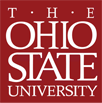Cienega de Santa Clara: Creating a sustainable future for an anthropogenic wetland in the Sonoran Desert
Symposium Organiser(s):
Edward P. Glenn, University of Arizona, Tucson, Arizona, USA
Cienega de Santa Clara is a man-made wetland created by the disposal of agricultural drain water from the U.S. to the intertidal mudflats of the Colorado River Delta in Mexico. Created in 1976, the Cienega covers 5600 ha and is now the largest emergent wetland in the Sonoran Desert. It supports rare and endangered bird and fish species and is a nesting and feeding area for marshbirds and shorebirds on the Pacific Flyway. It is an ideal study area for wetland hydrology and biology, because it is supported by a point source of measured inflows and is isolated from surrounding habitats. In 2010 it was subjected to a reduction in flows and increase in salinity due to test operation of the Yuma Desalting Plant. As part of the test run, a large team of Mexican and U.S. scientists were asked to conduct studies on all aspects of the Cienega for two years prior to the test run, during the test run, and in the year following. This symposium will present the scientific findings on the hydrology, ecology and ecosystem services of this unique wetland, and present models on how to sustain the ecological functions of such engineered wetlands into the future.
Keywords: Typha domengensis, Pacific Flyway, Scirpus americanus, constructed wetland
Symposium Presentations:
Cienega de Santa Clara: Inadvertent creation of a world-class wetland in the Sonoran Desert
Karl Flessa, Department of Geosciences, University of Arizona, Tucson, AZ, USA
Water quality effects on flora and fauna in a brackish desert wetland
Jaqueline Garcia, CIAD, Govt. of Mexico, Guaymas, Sonora, Mexico
Habitat requirements of marshbirds and shorebirds in the Cienega de Santa Clara
Osvel Hinojosa, Pronatura Noroeste, Colonia Sonora, San Luis Rio Colorado, Mexico
Evapotranspiration in Cienega de Santa Clara by water balance and remote sensing methods
Edward Glenn, University of Arizona, Environmental Research Laboratory, Tucson, AZ, USA
Delta dynamics: Effects of tides, river flows and a major earthquake on Cienega de Santa Clara in the Colorado River Delta
Steve Nelson, (USGS, retired), Vancouver, WA, Canada
Preserving a binational asset: Policy and socioeconomic issues in maintaining Cienega de Santa Clara
Laura Lopez-Hoffman, University of Arizona, Department of Natural Resources, University of Arizona, Tucson, AZ, USA
Models and management options: Planning a sustainable future for Cienega de Santa Clara
Martha Gomez, University of Arizona and Pronatura, Department of Soil, Water and Environmental Science, University of Arizona, Tucson, AZ, USA




